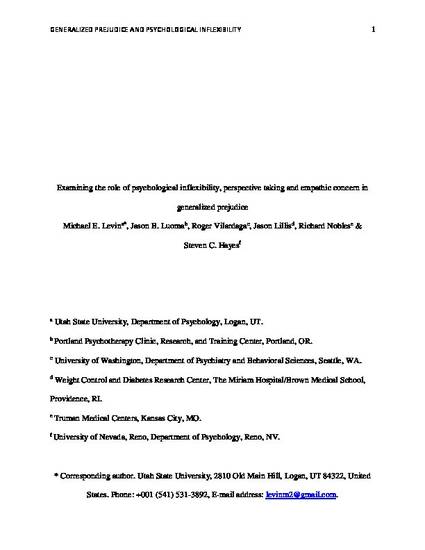
Research to-date on generalized prejudice has focused primarily on personality factors. Further work is needed identifying manipulable variables that directly inform anti-prejudice interventions. The current study examined three such variables: empathic concern, perspective taking, and psychological inflexibility/flexibility with prejudiced thoughts, as a test of the flexible connectedness model. A sample of 604 undergraduate students completed online surveys. A model indicated prejudice measures loaded onto a latent variable of generalized prejudice. In a second model, psychological inflexibility, flexibility, empathic concern and perspective taking were all significant, independent predictors of generalized prejudice. Psychological inflexibility also predicted prejudice above and beyond personality and general inflexibility variables. Results suggest the three components of the flexible connectedness model may be important targets for prejudice interventions.
Available at: http://works.bepress.com/michael-levin/6/
